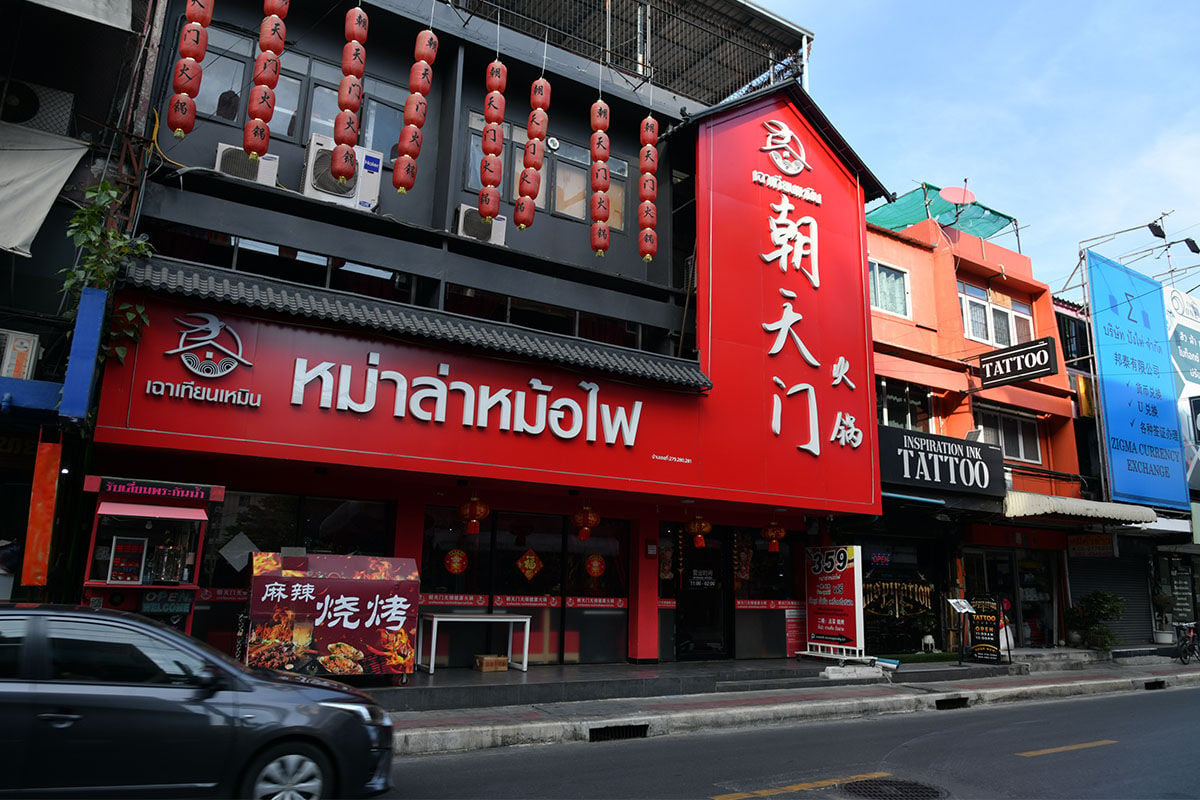Chinese resurgence transforms Bangkok’s Huai Khwang district into new Chinatown

Bangkok’s Huai Khwang district, home to a rising number of Chinese expatriates, is reinforcing its reputation as the city’s second Yaowarat or New Chinatown. The Covid-19 pandemic resulted in a temporary withdrawal of Chinese vendors from the district, but with the Chinese government deciding to lift border restrictions earlier this year, investors appear to be flocking back.
The district’s pulse beats strongest around the Huai Khwang MRT station and the Pracharat Bamphen Road, both magnets for Chinese residents and vendors. The entire length of the road, beginning at the bustling Huai Khwang intersection, is dotted with establishments with Chinese signages – restaurants, massage parlours, shops and currency exchange counters.
Often seen as the economic face of Chinese immigration in Thailand, the district is also a popular haunt among the locals and Chinese expat community.
While the increased Chinese influence could breathe new life into the district, locals are naturally concerned. They fear that the sudden surge could bring about negative changes impacting their day-to-day lives.
Chanchai Suksabai, a 60 year old vegetable seller who has resided in the area for half a century, witnessed an influx of Chinese immigrants in the district around a decade ago.
He attributes the growing demand from newcomers to the spike in the median commercial rent, from roughly 10,000 baht per month to a staggering 40,000-50,000 baht today.
“Thai shops are closing as a result of such inflation, and many Thai entrepreneurs with aspirations to set up shop in the area are being displaced.”
That said, the arrival of the Chinese community to the Huai Khwang district is a boon for some Thai businesses. A local Thai massage parlour owner stated that more than half of her clients hail from China. She claims that her clientele increased post-pandemic.
However, local drugstore owner Amporn Phongpochai notices a shift in consumer behaviour among her Chinese customers. They now tend to purchase smaller quantities of goods for personal use as opposed to the larger quantities intended for resale in China, reported Bangkok Post. Amporn acknowledges that newcomers are asking her about renting or purchasing buildings in the area.
“They do not care about the price because they are always ready to invest.”
Despite the commercial benefits of more investment, Amporn is wary that local traditions could be sidelined due to cultural differences. She cites issues such as illegal parking, loud noise, smoking in undesignated spots, and occasional brawls, which might not sit well with the locals.
Thai grocery shop owner, Kittisak, argues that fellow Chinese shops in the district patronized by Chinese customers negatively impact the business for everybody else. He calls for the government’s intervention.
“The Thai government never focuses on controlling Chinese investment and refuses to promote the Thai business sector to compete with foreign businesses. This makes it hard for making Thai competition to survive.”
Bangkok Governor Chadchart Sittipunt instructed the Huai Khwang district chief to strictly regulate Chinese-funded businesses, adding that some have already been closed due to non-compliance with the Food Act regarding imported food.
Despite the mixed reactions from the locals, Chinese expats and businesses in the district are positive about their prospects. Li Ping Xia, a property manager, highlights the district’s proximity to Chinese and Korean embassies and international companies as key factors drawing Chinese investors.
Guo, a Chinese expat residing in Huai Khwang district, calls it a second Chinatown, citing the convenience of the MRT as a bonus.
Latest Thailand News
Follow The Thaiger on Google News:


























